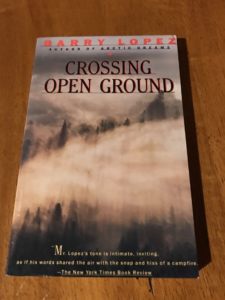If you missed part one, read it Here.
A Touch of Context
As I mentioned in part one of this essay, a friend of mine once told me that if you could build something, you could design it.
When he made his claim, I felt we were on the path to understanding the limitations of knowledge.
If you can build something, can you design it?
Our conversation began with an analysis of the differences between knowledge and understanding, and the role those two forms of cognition play in our society. The conversation took a turn, however, when we’d established that knowledge was a function of a discipline, a manifestation of accuracy determined by a person’s approach to a task and the outcome of their activity. Understanding, however, remains a relationship, a type of experience.
Which led us to the question with which we ended Part One: Does knowledge define or deny truth?
Foundation for Argumentation
As a society, we value knowledge because it’s practical.
When we work at something, we want to realize an outcome.
Our society’s scientistic approach necessitated compartmentalization and specialization.
An architect designs the building. An engineer (or several different types of engineers) determines the structure’s demands, requirements, efficiency, and stability. And multiple teams of specialized laborers, craftsmen, contractors, electricians, and carpenters build the building. All (hopefully) know their craft. None need understand the work of the others to make their contribution or to know the value of the project.
How much does the architect need to understand to know how to design?
In as much as the structure stretches the limits of predetermined condition, the design demands understanding.
As long as we rely on tried-and-true methods, we can recreate the edifices we’ve come to know. Certain designs solve specific needs, and we can use those structures or models accordingly. We can lean on our knowledge to guide us through the areas we already know.
Anyone who wishes to step outside of expectation, to exceed expectations, must learn to feel, alone, the conditions of their task. Experience beyond expectation contains no identifiable meaning. We determine that meaning relative to the experience. The individual alone becomes the apparatus and determinant of meaning.
Sensitivity, therefore, becomes the only way one can understand. No one can explain understanding. One must achieve understanding through experience.
Knowledge defines truth within the boundaries of the known discipline; knowledge denies truth beyond those boundaries.
By defining and denying truth, knowledge opens certain paths to understanding while obfuscating others.
What, then, is the role of emotion in understanding?
Continued in Part Three.
After Thoughts
Again, I’m left with more questions than answers. Here are a few of those questions in the hopes that you can help me think through these issues.
How do you identify the difference between skill and understanding?
Have you ever, in your own life, found your skill limited by a lack of understanding?
Despite clear skill, did you struggle to discern the next logical step in developing a project?
Please share your thoughts in the comments section below. I look forward to hearing from you.






2 thoughts on “Is There Understanding Without Sensitivity? (Part Two)”
Gotta confess, I don’t have the answers.
But I am trying to push myself past the barriers of others’ expectations. Or my own, maybe. 🙂
https://youtu.be/d7F-cNu60z4
It won’t win any awards, but it’s there. And I made it. 🙂
Thanks for sharing, Debbi!
I enjoyed your video, a cool meditation on writing, walking, and compensation.
Best,
Indy